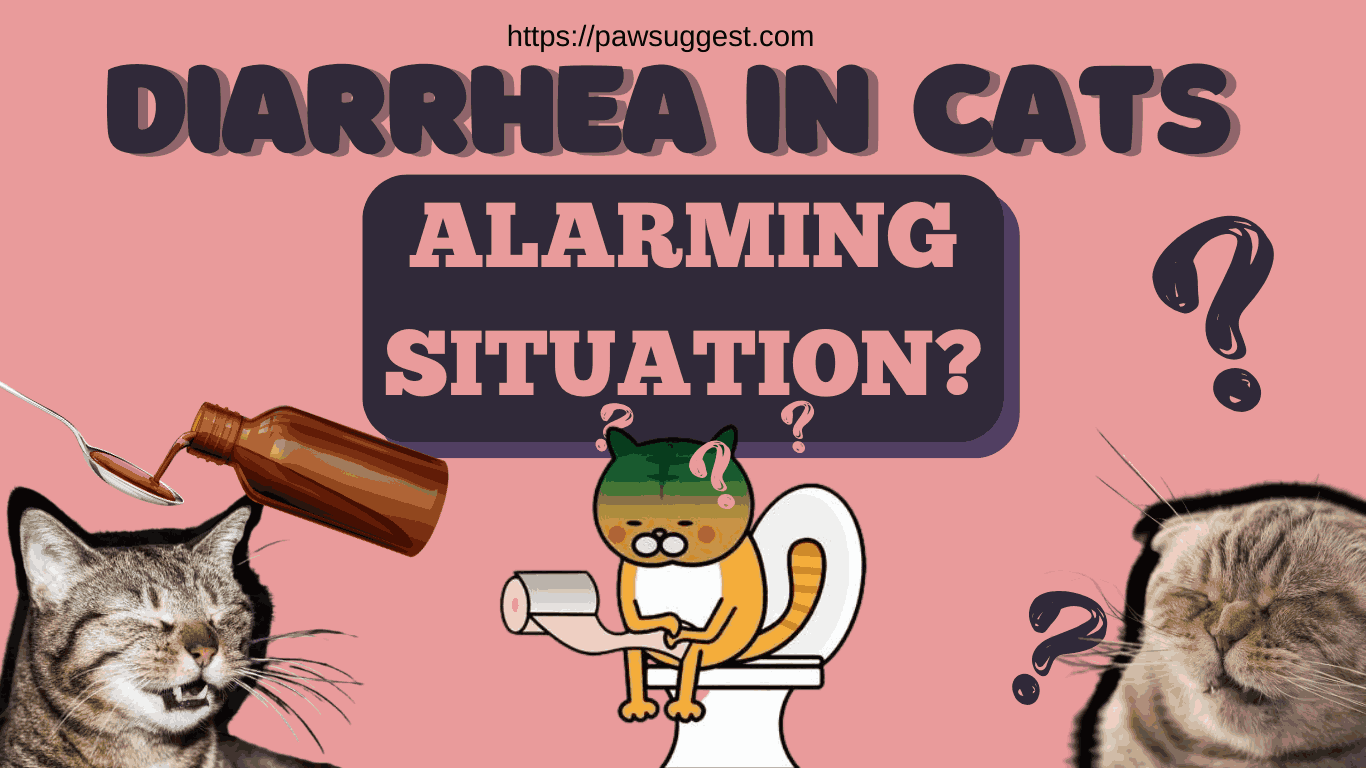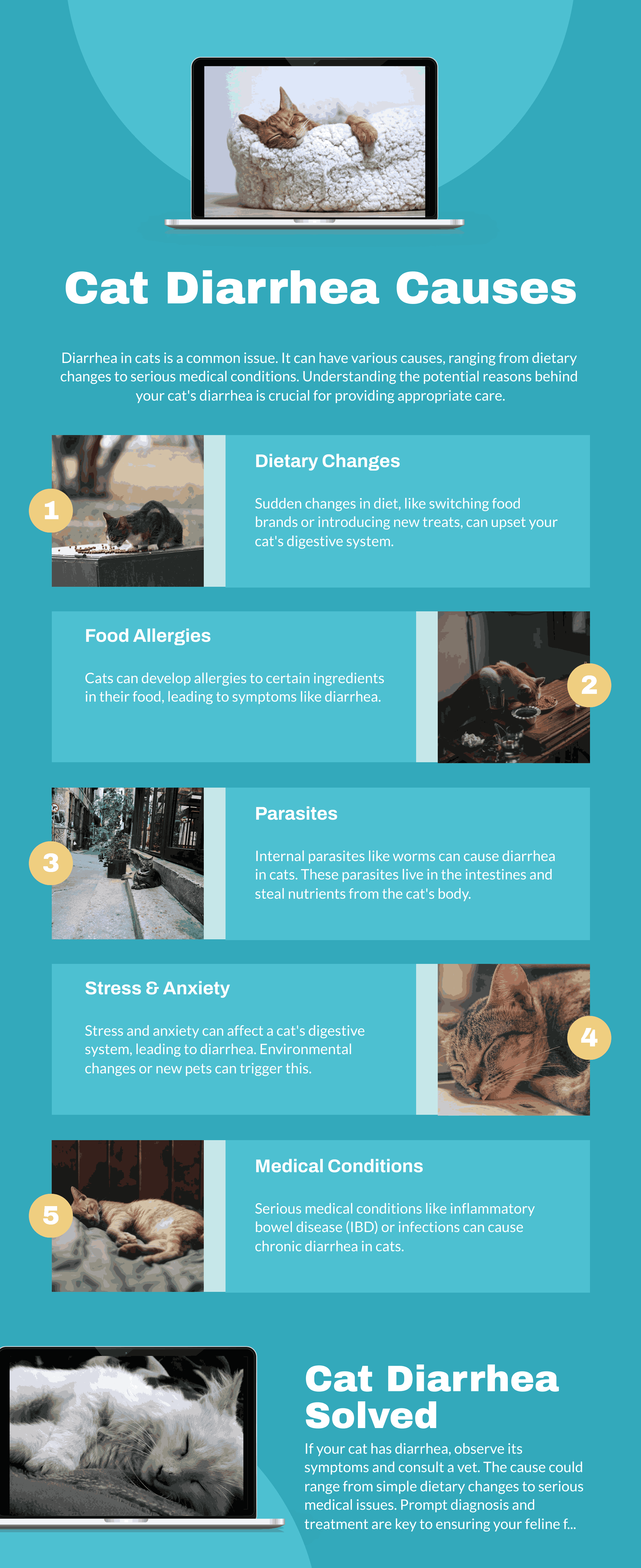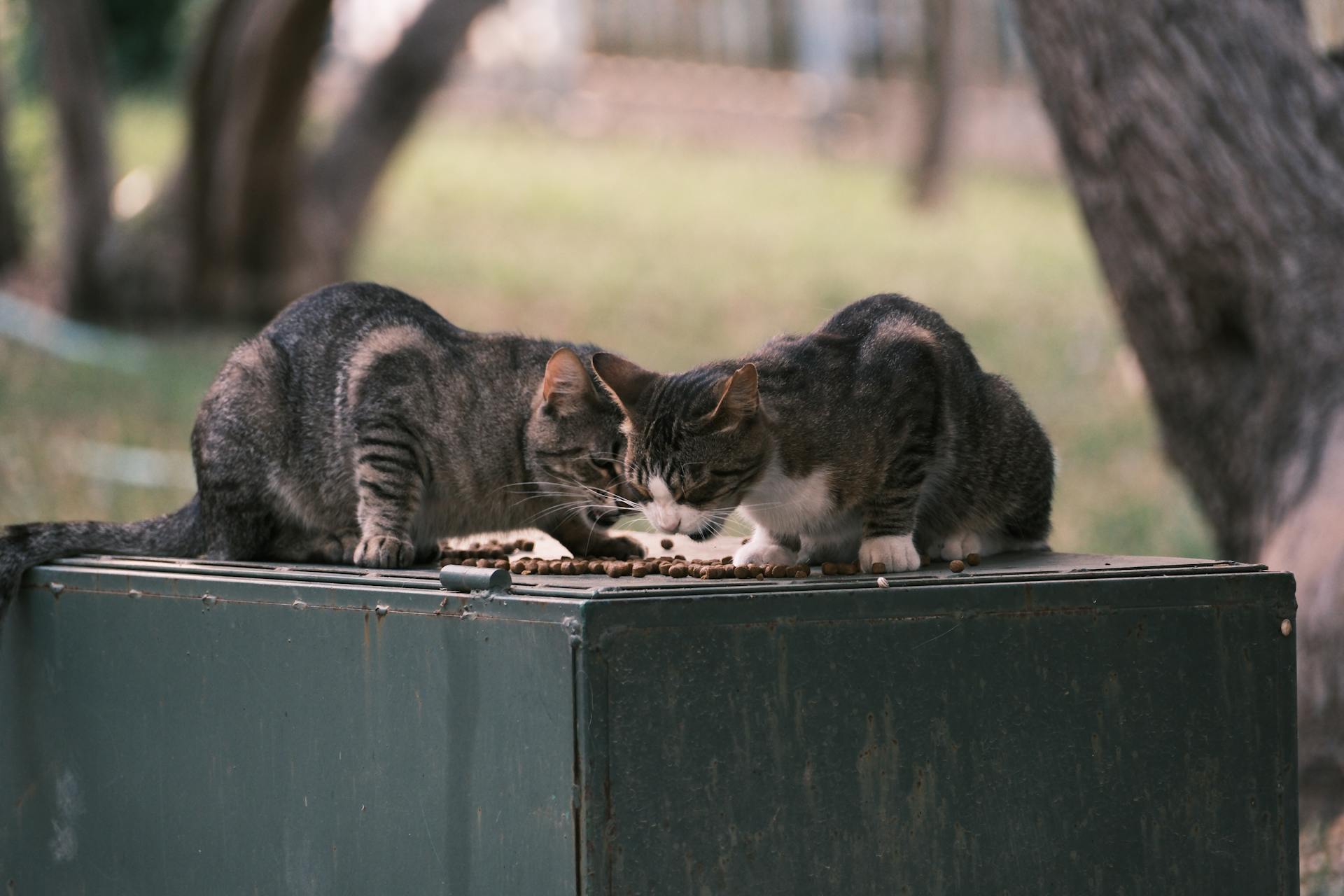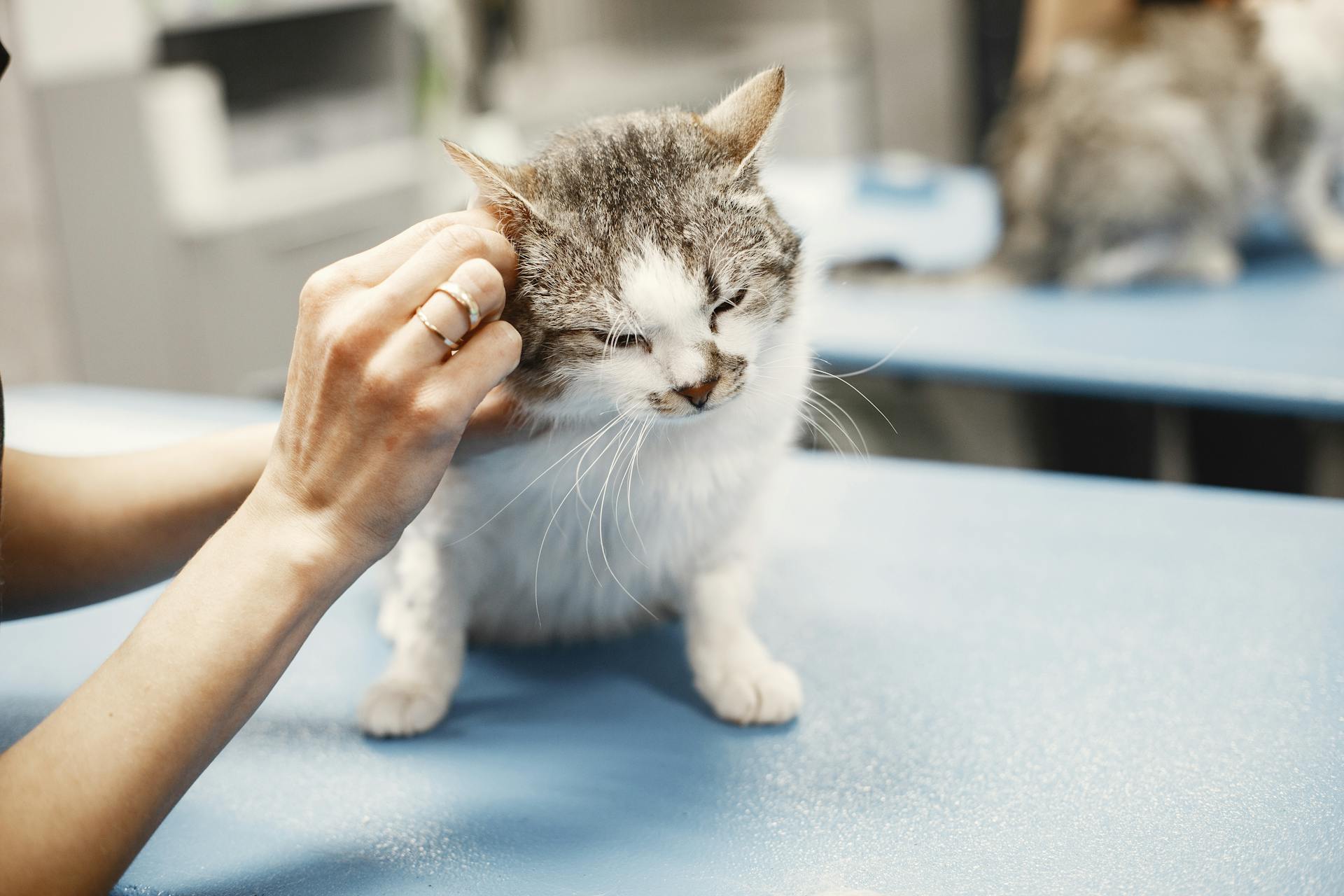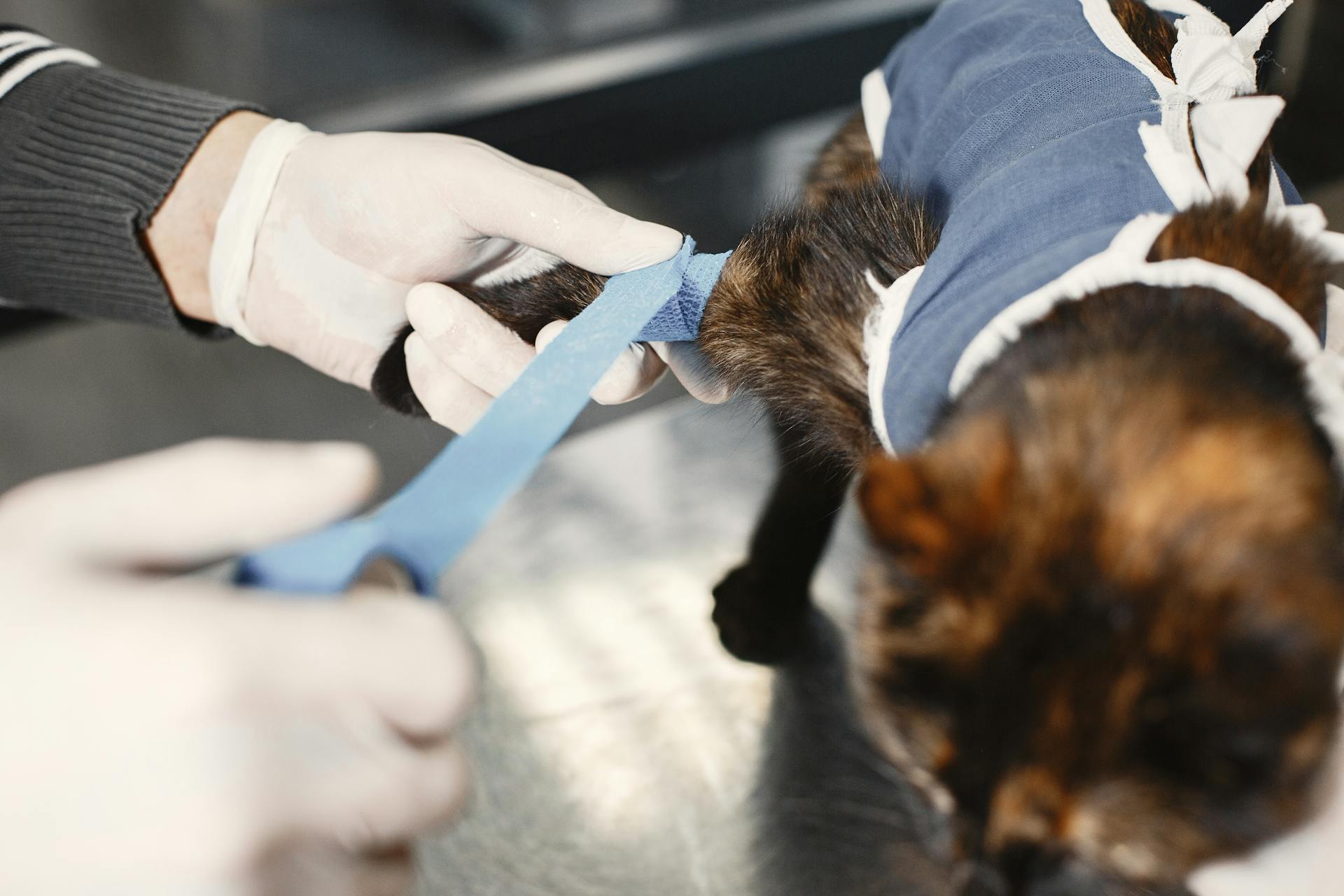As cat parents, it’s crucial to stay aware of the subtle signs that your feline friend may be experiencing an illness. Changes in your cat’s energy levels, eating or drinking habits, and even their urination or defecation routines can signal a problem. If your cat shows signs of diarrhea, it’s important to pay attention to the consistency, color, and frequency of their stool.
Diarrhea can be one of the messiest and most distressing symptoms to handle but noticing these changes can help you respond quickly. From my own experience and talking to vets in Tracy, I’ve learned that diarrhea often has common causes like dietary changes or infections.
It’s vital to identify the condition and recognize when it becomes serious. As a cat parent, if you’re dealing with ongoing diarrhea, seeking veterinary attention is necessary to help your feline recover and prevent further complications.
Diarrhea in Cats (Short Answer!)
What is Diarrhea in Cats?
Diarrhea in cats can be a distressing and uncomfortable symptom that worries pet owners. Mild bouts of diarrhea are common and can happen if your kitty experiences intestinal distress after eating something unusual like table scraps, or due to a sudden switching of their brand or flavor of food.
However, when diarrhea becomes unformed or loose stools that happen with increased amount and frequency, it’s a sign of faster movement of fecal material through the intestine. This can lead to a decreased absorption of water, nutrients, and electrolytes.
While diarrhea itself isn’t a disease, it often signals other serious health conditions, especially if it’s prolonged or severe, causing your cat to suffer from a more generalized problem. Recognizing these signs early on is essential for helping your cat recover quickly.
Why Does My Cat Have Diarrhea?
These are some potential reasons why your cat might have diarrhea:
-
Dietary Indiscretion and Sudden Diet Changes
A common cause of diarrhea in cats is eating something they shouldn’t or experiencing a sudden change in diet. Cats are curious creatures, often chewing on inappropriate things like grass, string, or even food they find in the trash. This can cause GI upset and lead to soft or liquid diarrhea.
While this type of diarrhea can be self-resolving in a 24-hour period, you should always watch for worsening signs. Especially in younger kittens or older cats, their bodies may not recover as easily, leading to more serious complications.
-
Parasites and Worm Infestations
Parasites are another common reason for diarrhea, particularly in kittens or cats from certain populations. Parasites like roundworms, hookworms, or giardia can infect the gastrointestinal tract, leading to chronic diarrhea. Significant numbers of parasites can irritate the bowels, causing loose stool or even vomiting.
Without treatment, these infections can severely dehydrate and malnourish your cat, making it essential to seek veterinary care for testing and proper deworming.
-
Bacterial and Viral Infections
Viral infections and certain bacterial infections can also trigger diarrhea. Feline panleukopenia, calicivirus, or even less severe viruses can affect stool consistency and lead to diarrhea. Similarly, bacterial infections from food or the environment can disrupt the digestive system.
These infections can be mild or more severe depending on the strain and severity, and sometimes, the diarrhea might occur in conjunction with vomiting. If your cat is gagging or experiencing both symptoms together, it could be an indication of a more serious issue.
-
Inflammatory Bowel Disease (IBD)
Chronic diarrhea in cats may be linked to inflammatory bowel disease (IBD), a condition that inflames the digestive tract. IBD can lead to long-term issues in stool consistency, ranging from soft stools to more severe cases of liquid diarrhea.
Cats with IBD need to be assessed by a veterinarian for proper management, especially if their diarrhea is persistent. This condition may also lead to vomiting, and in some cases, weight loss due to poor nutrient absorption.
Types of Diarrheas in Cats
Bloody Diarrhea
Bloody diarrhea in cats is alarming and requires a trip to the veterinarian. If the feces appear red or black, it could signal bleeding in the upper GI, including the stomach and small intestine, where blood has been partially digested.
Bright red blood indicates lower intestinal bleeding from areas like the colon or rectum. In some cases, a mucus-coated stool may suggest inflammation of the digestive system, dehydration, or a parasitic infection.
Discolored Diarrhea
Yellow or green diarrhea often occurs when something unusual has been ingested, such as grass or green kibble. While green stool is usually not a medical concern, it could be linked to gallbladder disease.
Yellow stool, however, is a potential emergency and may point to serious issues like liver disease, failure, or even zinc poisoning. In rare cases, it may indicate immune-mediated hemolytic anemia or an overgrowth of bacterial pathogens.
Acute Vs. Chronic Diarrhea in Cats: Definition and Causes
Diarrhea in cats can happen for many reasons. If your cat is not eating and has diarrhea, it could be a sign of something serious. Often, changes in diet, infections, or even toxic foods can lead to this issue. Cats may suffer from either acute or chronic diarrhea, depending on how long the symptoms last and their cause.
Acute Diarrhea in Cats
Acute diarrhea comes on suddenly and usually lasts for less than 14 days. It may resolve with conservative treatments like probiotics and supplements or a short-term diet change. In most cases, the body’s healing mechanisms, along with the immune system, help the cat recover.
However, if the diarrhea persists for more than a few days or if your cat is not drinking water, consult a vet immediately for oral medications or further diagnostic testing.
Chronic Diarrhea in Cats
Chronic diarrhea, lasting more than two to three weeks, is usually more serious. This condition often points to underlying health problems like inflammatory disease, diabetes, or hyperthyroidism. Diagnostic testing and possibly hospitalization are required for a proper medical diagnosis.
Long-term issues like resistant infections or life-threatening complications may arise, requiring a well-planned, long-term treatment plan. The vet’s focus will be on the cause rather than just stopping the symptoms.
Causes and Risk Factors
The causes of both acute and chronic diarrhea vary widely. They can include infectious agents like parasitic, bacterial, or viral organisms, metabolic issues, food allergies, or even toxic products. Sudden diet changes, contaminated food, or poorly managed health conditions can worsen the situation.
It’s crucial to monitor any sudden changes in your cat’s behavior and get them examined by a veterinarian to address the underlying cause properly.
When to Visit Vet for Your Cat’s Diarrhea?
If your cat has one episode of diarrhea but is otherwise normal, just monitor for changes. If diarrhea happens twice in quick succession or becomes watery, contact your veterinarian. Cats that strain with little or no stool might have a painful blockage from swallowing a foreign object like a toy, requiring urgent attention.
This is especially concerning for old, young, or immunocompromised pets, as recurring diarrhea could indicate severe underlying health issues like infections. Watch for symptoms such as vomiting, weakness, or blood in stool.
Other warning signs include unusual drooling, lack of appetite, and dehydration—look for sunken eyes, a dry nose, or sticky gums. If these appear, schedule a vet appointment for immediate examination. If diarrhea lasts beyond 24 to 48 hours, especially in older cats or kittens, or returns after weeks, seek immediate medical help, especially if there’s fever, abdominal pain, or loss of appetite.
How to Diagnose Diarrhea in Cats?
When a cat has diarrhea, a Veterinarian will often begin by asking for a detailed medical history. This helps document when diarrhea started, how frequent it is, and if any changes in diet or environment occurred. The Veterinarian may also need a fresh stool sample to analyze for intestinal parasites or infectious causes.
In mild cases, deferred diagnostic testing is common, but if symptoms worsen or treatment fails, additional tests like blood work, rectal swabs, or fecal tests may be done. Fecal flotation, antigen testing, or cytology can help check for parasites or bacterial infections. Advanced tools like ultrasound, radiographs, or even endoscopic exams may also be used if foreign body ingestion or cancer is suspected.
How to Treat Diarrhea in Cats?
If your cat has diarrhea that’s yellow, bloody, or accompanied by vomiting, contact your vet immediately. Kittens, senior cats, those with chronic diseases, or pregnant cats need special care. Your vet will diagnose the cause and start the right treatment.
In severe cases, hospitalization may be needed, especially if your cat is dehydrated, not eating, or lethargic. Hospital treatments may include intravenous fluids, antibiotics, and anti-nausea medications. At home, increase fiber intake with supplements, canned pumpkin, or feline-specific products.
For soft stool, feed small, easily digestible meals like low-fat potatoes, pasta, rice, or chicken. Some cats may also benefit from probiotics. If stool doesn’t improve in one to two days, consult your vet.
If diarrhea persists or worsens, additional treatments like de-wormers or probiotics may be prescribed. Some vets recommend withholding food for 24 hours or giving small amounts of a veterinary diet to support gastrointestinal health.
Final Takeaway
To ensure your cat’s well-being:
- Monitor diarrhea for changes in consistency, color, and frequency.
- Seek veterinary attention if symptoms persist or worsen beyond 24 to 48 hours.
- Look out for dehydration, vomiting, or blood in stool.
- Be especially cautious with young, old, or immunocompromised cats.
- Act quickly if the diarrhea is accompanied by other serious symptoms.
FAQs
When to worry about cat diarrhea?
If your cat has two or more bouts of diarrhea and is straining to pass a stool, it’s time to contact your veterinarian. Small, watery stools could mean a painful blockage from ingesting a foreign object like a toy.
What are common causes of diarrhea in cats?
If your cat shows stress, is eating garbage or spoiled food, or has changes in their diet, it’s time to worry. Signs of parasites, viral infection, colitis, or even intestinal cancer may require a vet visit, especially if they’ve been ingesting toxins or poisons.
How do you stop severe diarrhea in cats?
To stop severe diarrhea in your cat, you can change their food to a low-fiber, highly digestible diet. Ensure they have enough water and electrolyte intake, and consider using probiotics or anti-diarrheal medications.
Are cats in pain when they have diarrhea?
Yes, cats can feel supremely uncomfortable when they have large bowel diarrhea. The continued straining can make their irritation even worse, so it’s important to see a veterinarian who can administer medications to help ease their discomfort and help them feel better quickly.

